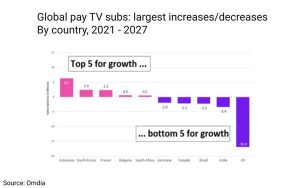
Employees who receive helpful, continuous feedback from managers not only work better and are more motivated, but they’re also much more engaged.
A survey conducted by leadership trainers Zenger Folkman that looked into the feedback practices of 22,000 leaders around the world found that leaders who scored in the top 10 percent on giving feedback had employees who were three times more engaged than employees with leaders scoring in the bottom 10 percent. Unsurprisingly, the study also revealed that the bottom 10 percent of leaders had employees who were three times more likely to think about quitting.
Zenger Folkman concluded:
Employees are far more content, put forth extra effort, stay employed longer, and have enormously better relationships with their manager if their leader provides effective feedback.
Another study by pollster Gallup examined feedback and engagement on a more granular level, looking specifically at differences in engagement between employees who got feedback focusing on:
- Positives strengths;
- Weaknesses; and
- No job feedback at all
The survey found that the biggest engagement gap was between workers who received praise or congratulatory feedback and those who were ignored with no feedback. Only 1 percent of employees who received positive feedback were actively disengaged compared to a whopping 40 percent of those who didn’t receive feedback.
Not all feedback has to be positive. Gallup also discovered that 22 percent of employees receiving negative feedback — i.e., you need to fix this — were disengaged. And while that’s still far from ideal, it is also half the disengagement level of those who received no feedback. In other words, not making feedback a routine part of the job results in a disastrous effect on engagement — one noticeably worse than giving critical feedback. As Gallup concluded:
Being overlooked, it seems, is more harmful to employees’ engagement than having to discuss their weaknesses with their manager.
What this all boils down to is that feedback from a supervisor is a valuable resource for employees, and signals that their leader/workplace is interested in the their performance and development.
Karen May, VP of People Development at Google, summarizes the importance of constructive feedback this way:
Just at a human level, it’s difficult to tell somebody that something that isn’t working about them. But I came to find that people are incredibly grateful. If I’m not doing well and I don’t know it or I don’t know why or I can’t put my finger on what’s not working and no one will tell me, I won’t be able to fix it.
Feedback, both praiseworthy and more critical/constructive, is a powerful thing. And it should be given routinely and appropriately. Let’s go through some simple tips on how to solicit feedback:
When/When Not to Give Feedback
Some conditions on when leaders should give feedback are:
- When it is expected. Example are if a feedback session is already booked or if a supervisor directly observes the behavior.
- The skills/behavior the feedback involves are likely to be used again. This increases the odds of those skills being improved upon.
- There’s an immediate problem. Instances of this include when the behavior is negatively affecting coworkers.
Feedback should not be given when:
- Emotions are running high, either the manager’s or the employee’s. This is especially true if the feedback concerns a tricky or challenging incident or event.
- The behaviors are the result of external factors.
- You have not yet thought of a possible solution that would impart lessons-learned and allow things to advance.
More tips on timing can be found in this great article by HRB.
Be Fair
“Fairness” is a term that gets thrown around a lot when it comes to work relationships. But what does it mean when it comes to giving feedback?
A German study focused on the link between fairness of feedback and levels of engagement. The researchers went on to break down feedback fairness into the following:
- Fair means properly reflecting the employee’s effort, performance and results of work as a non-negotiable component of giving feedback.
- Fair relies on accurate information, is free from bias, and is based on adequate procedures. And not making assumptions here but questioning your starting-point reason for the feedback, whether it originates with another person or yourself.
- Fair is delivered with politeness and respectfulness. No need for elaboration.
- And fair should be sincere and given with adequate explanation. Take the time to go through the reasoning behind your feedback.
Prep and Clear Your Mind Beforehand
Don’t bring any baggage with you into the feedback meeting. Take time to consider what you are going to say and your feelings about the employee’s performance.
If contemplating giving feedback stirs up negative emotions, don’t go ahead but reschedule. Any vibes will be picked up upon, and could taint the whole exercise. As mentioned, for feedback to work it must be fair. If there’s anything that will cast this fairness into doubt then stop and check your reasoning before proceeding.
Get Them to Provide Feedback
Make feedback a two-way street by creating an opportunity for introspection. One way to do this is by asking for feedback before you give it. You’d be surprised how often people realize the need for improvement before you approach them, meaning you’re both on the same page before anyone has said a word. If so, acknowledge their understanding and ask a follow-up question on what steps they think can be taken to correct or improve the behavior in question.
One of the big benefits of letting them share their thoughts before you share yours is a boost to the resulting level of commitment to change. Effectively, it boosts their motivation to accept and adopt the corrections.
Business & Finance Articles on Business 2 Community(47)








